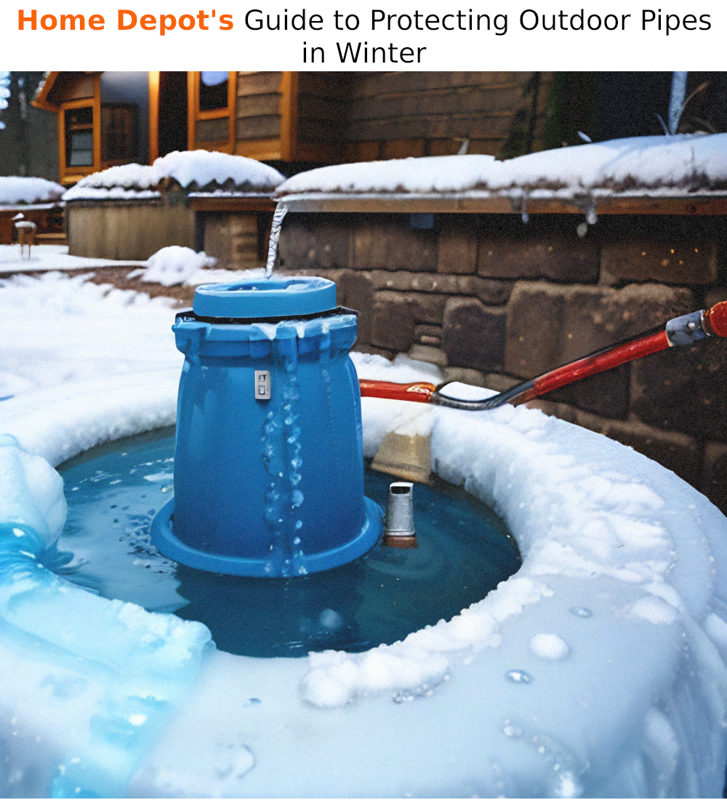Winter can be a harsh season for outdoor pipes, especially in areas with freezing temperatures. As a homeowner, it's important to take the necessary steps to protect your pipes from freezing and bursting, which can lead to costly repairs. In this guide, we'll discuss the best methods for protecting your outdoor pipes in winter.
Insulate Your Pipes
One of the most effective ways to protect your outdoor pipes is by insulating them. Pipe insulation, also known as pipe sleeves, can be found at your local hardware store or home improvement retailer like Home Depot. These sleeves are made of foam or fiberglass and can easily be cut to fit your pipes. Simply wrap the insulation around your pipes and secure it with duct tape. This will help prevent the pipes from freezing and bursting.
Drain and Disconnect Outdoor Hoses
Before the first freeze of the season, it's important to drain and disconnect any outdoor hoses. Leaving hoses attached to outdoor faucets can cause water to back up into the pipes, leading to freezing and potential bursting. Make sure to drain the hoses completely and store them in a warm, dry place for the winter.
Use Heat Tape
For pipes that are particularly vulnerable to freezing, such as those located in unheated areas or near exterior walls, heat tape can be a lifesaver. Heat tape is an electrical heating element that can be wrapped around pipes to keep them warm and prevent freezing. It's important to follow the manufacturer's instructions when using heat tape and to regularly check for any signs of damage.
Keep Garage Doors Closed
If you have pipes located in your garage, it's important to keep the garage doors closed during the winter. This will help keep the temperature inside the garage above freezing and prevent pipes from freezing and bursting. If you have a detached garage, consider insulating the pipes or using a space heater to keep the temperature above freezing.
Seal Any Cracks or Holes
Inspect the exterior of your home for any cracks or holes near your outdoor pipes. These openings can allow cold air to seep in and freeze your pipes. Use caulk or weather stripping to seal any cracks or holes and prevent freezing.
Shut Off and Drain Outdoor Water Supply
If you have an outdoor water supply, such as a sprinkler system, it's important to shut it off and drain it before the first freeze. This will prevent water from freezing and causing damage to the pipes. If you're unsure how to properly shut off and drain your outdoor water supply, consult a professional.
By following these tips, you can protect your outdoor pipes from freezing and bursting during the winter months. Remember to regularly check on your pipes and take action if you notice any signs of freezing. With the right precautions, you can ensure that your pipes stay in good condition and avoid costly repairs.
Have you used any of these methods to protect your outdoor pipes? Do you have any other tips to share? Let us know in the comments.




